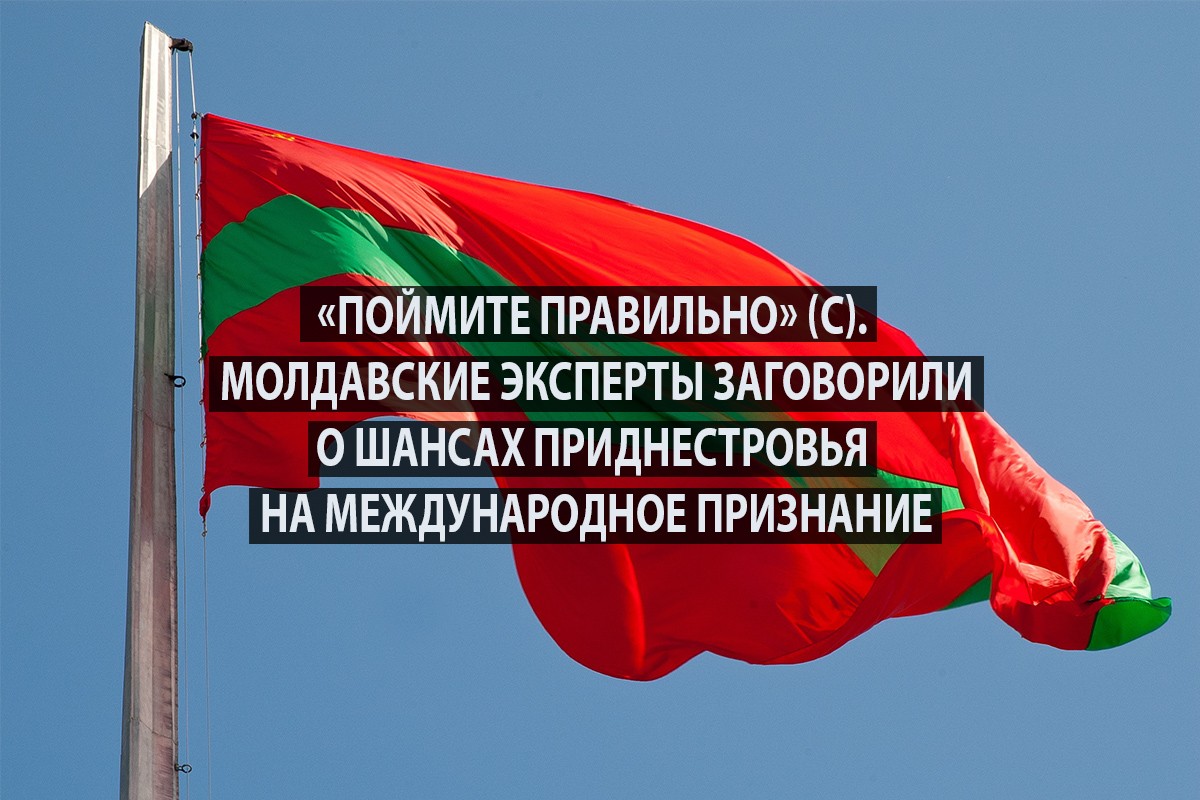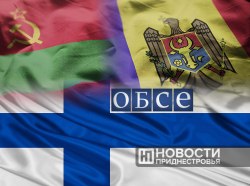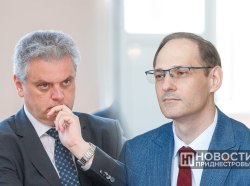The meeting of Sub-committee on Conflicts between Council of Europe Member states will take place in Paris on January 16; the Chairman of the Pridnestrovie's Supreme Council Alexander Shcherba and the Foreign Minister of the republic Vitaly Ignatyev will also participate in it. Talking about the preparation for the visit of the representatives from the PMR to the capital of France, the head of state Vadim Krasnoselsky emphasized that the main task of the Pridnestrovian delegation was to put forward the arguments for the international legal recognition of independence of the republic to the European parliamentarians, to inform about the position of the Pridnestrovian side on that matter with no middlemen.
Immediately following the information on participation of Pridnestrovians in the dialogue on the PACE platform, journalists and experts noted that representatives of the PMR were invited even more often to Europe. Visits of the Pridnestrovian authorities to London, Brussels, Rome and Tel Aviv were mentioned. It became known later on that a new political representative of Chisinau in the negotiation process Christina Lesnik would also go to Paris to hold the first meeting with her Pridnestrovian counterpart - the Foreign Minister of the PMR Vitaly Ignatyev. The Paris event becomes more and more significant and acquires new meanings. The more exciting it was to see the reaction of the expert community of Moldova which had been likely to find its position on the coming discussion in the capital of France by the end of the week.
The day before Moldavan DESCHIDE.MD news agency known for its strident anti-Pridnestrovian and anti-Russian rhetoric and also for its direct connection with intelligence agencies of the RM had published the comment of the political analyst Petru Bogatu. The last-named one, in turn, criticizes Russia too much and acts through the lens of the Romainian-unionist point of view. In simple terms, in his article 'Pridnestrovye has much more chances of independence than Catalonia today' Bogatu hesitates, but raises the alarm noting that "time is not on the side of Chisinau, but rather on the side of Tiraspol today".
"In 2018, Pridnestrovie will begin looking for guerrillas of its separatism in the European Union, justifying own actions with the historic right. It will try to speculate on the examples of the international precedents of peaceful separation (such as Czechoslovakia, Montenegro and Kosovo, why not?) to prove to the western politicians that the idea of a civilized divorce of two banks is the only acceptable decision," the Moldavan analyst writes.
We leave out the fact that the Moldovan expert tries to give "a secret de Polichinelle" for a sensation that Pridnestrovian authorities stated repeatedly that they would assert their right to independence on all available platforms. Moreover, Bogatu complains further in the text that the Pridnestrovian authorities "don't even hide own intentions to use the PACE platform in discussion of the international recognition of independence of Pridnestrovie".
If the author slid down to the speculations about the need to punish "the separatist authorities" severely, the comment would be quite typical both for Petru Bogat and for DESCHIDE.MD.
It is similar to the rhetoric of Yulian Kifuon - a famous representative of the Romanian expert community on the web pages of the same portal. In general, his comment centers around such rhetorical questions as: "Why are the 'separatists' given a word on the European platforms?" and "How did Chisinau allow that?"
Nevertheless, Petru Bogatu notes that "the strategy of Tiraspol makes sense" and it appears that Pridnestrovie even has historical background for independence. However, Bogatu in several paragraphs repeats obligatory tale that in Pridnestrovye from time immemorial there lived only Romanians and "all this milestones of the page of nice Romanian history". However, …
"… they aren't enough. Transnistriya is not Catalonia which has of own will united with the Castilian Kingdom in the Middle Ages, having become a part of the modern Spanish state. Anyway, but the most part of time the territory of a left bank of Dniester historically wasn't Romanian", – the author writes.
"Understand correctly", - mister Bogatu addresses the reader, understanding as his such words among colleagues and captive audience of "DESCHIDE.MD" can be apprehended. And then again indulges in revelations:
"The Republic of Moldova has no ability to assimilate Transnistriya with her urban population which is still under the influence of sovok ideology without to breaking his political and ethnic identity. It would be in power Romania, but I very much doubt that it wishes it".
For the Moldavian expert community of this sort a position – a case very infrequent. On the one hand, article, it seems, comes to the end with a standard conclusion: like, it isn't necessary to conduct negotiations with "separatists", otherwise they us "will talk over".
It is possible even to assume that such message is some kind of demonstration of a position of structures of RM of rather outlined activization of dialogue between Pridnestrovye and Moldova. As in an old known joke: "I have told the opinion, and you solve". However the fact that the "system" Moldavian expert sounds a thought of chances of Pridnestrovye of the international recognition in mass media undoubtedly, is very symptomatic.








